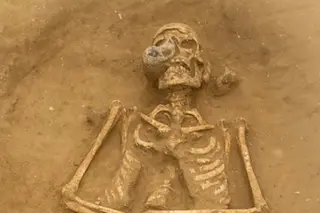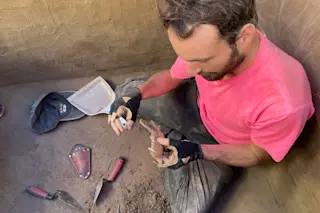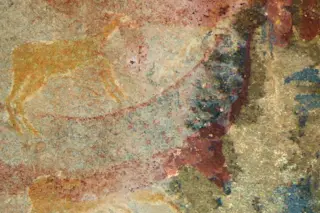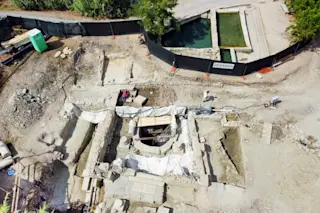Philistine history was written by their rivals, and unfortunately for them, that text became a best-seller: the Bible. According to the Old Testament, Philistines were a constant threat, producing infamous villains like the temptress Delilah and giant Goliath. Their bad reputation persists even today: Their name is shorthand for anyone averse to culture and learning.
“But the archaeology has shown them to be more than that,” says Harvard archaeologist Adam Aja, assistant director of excavations at Tel Ashkelon, a major Philistine port city in southern Israel.
Philistines left no written records, but over the years archaeologists have unearthed buildings and artifacts that show Philistines were cosmopolitan. Scholars believe they migrated from the Aegean around 1200 B.C. to the Levant where, for centuries, their mercantile culture thrived — until their cities were demolished by Babylonians around 600 B.C.
Modest grave goods unearthed in the Philistine cemetery included weapons, jewelry and this ...















